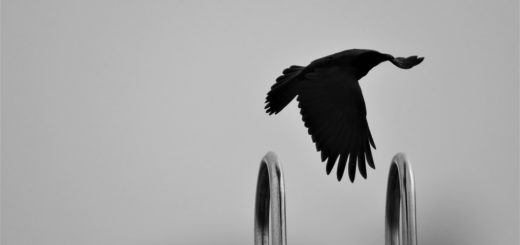Practicing Death
Losing an audience, with all that this entails, is a window into the personal meaning of death. From feeling deeply associated with, or embedded within, one’s human surroundings and their processes, one undergoes a gradual and involuntary detachment. Slowly, one perceives one’s increasing ineffectualness in a world where one had once perceived oneself as a cause of movement and an object of others’ awareness and interest. The sense of continual involvement and exposure turns to its opposite, namely the feeling that one’s voice is unheard, one’s very existence no longer visible, among those who once seemed, subjectively, to comprise the world of the living.
Being admired and appreciated by others was a motivation in itself, as well as a source of self-awareness and the vainglory of significance; even being hated and derided by some held a certain charm, in that it proved one’s relevance, and hence one’s presence, in the thoughts and feelings of the living. By contrast, the knowledge that one is no longer admired, no longer despised — specifically that one has arrived at these privations — divests one of that easy self-identification in relation to others that so captivates the man who has an audience: “I affect, therefore I am.” Here the man has a difficult choice to make; difficult in that the natural emotional reflex of anyone losing anything is to grab onto it with both hands and refuse to let go, whereas the rational and free choice will often be to let it go blithely. The proud man, in the Aristotelian sense, does not reduce himself to performing a desperate and sweaty dance to hold the attention or approval of those who cannot appreciate his intransigent sobriety and his refusal either to “commit” or to compromise. Socrates, facing a likely death sentence, tells his jurors that he will not cry and beg and drag his children in front of them as other men do, for he believes such behavior to be beneath him, come what may. So with the man who sees that he is losing his audience. To hold on for dear life, to jig and pose, to beg and cry, is to voluntarily enslave oneself to other men (i.e., to “life”), and to cling to the notion of an identity determined by relevance to the practical world, which is to say by seeming to matter. To shake off these instincts of immaturity is to free oneself at last of the need to participate, and to be seen as participating.
To the extent that this process of detachment from life (as perceived by the living) is the result not of a loss of one’s powers or will, but rather of choices made without reference to expectation and approval, and without concern for these choices’ reception among the many who had previously comprised one’s easy (but dubious) proof of life — to that extent, one may see in this altered condition an analogy, or perhaps more than an analogy, with Socrates’ dictum that philosophy is practicing death.



